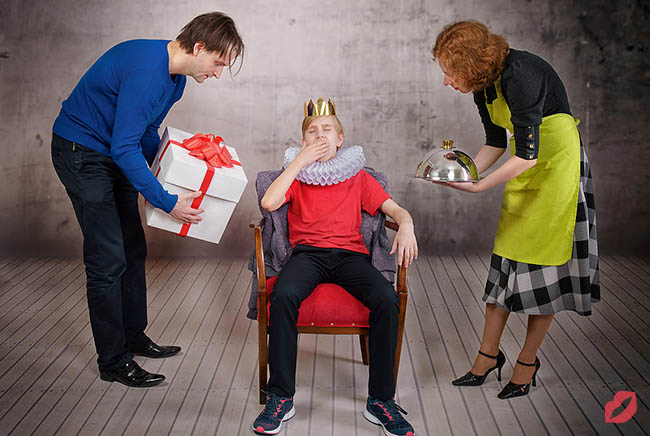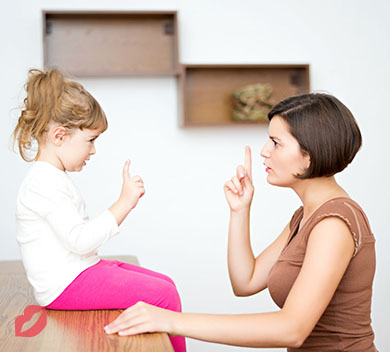What Is Helicopter Parenting?
Let’s kick this off by looking at the definition. What are helicopter parents? These are people who watch after every step that a kid makes, especially when it comes to their education. They are referred to as “helicopters” because they are literally hanging over a kid at all times, watching them and controlling all of their actions.
This is not a rare thing, lots of people have encountered it in their lives, whether they went through it themselves, or they heard about it from mothers and fathers. A person that didn’t experience it may not understand why it is so widely-discussed. But early childhood is the most vital period in a person’s life in terms of their upbringing, socialization, and adaptation to all of the external aspects of life.

The term is usually referred to in a negative light, and we cannot but really agree with the people who aren’t fascinated by this way of bringing up offspring. Today we are going to talk about everything that concerns helicopter parents, starting with some examples of their behavior.
Examples of Helicopter Parenting
Every loving folk tries to protect their kid from all sorts of anxieties and problems, they do everything in their power to do it. Care and suffocation of a kid are two completely polar-opposite concepts, not let them make a decision that is not controlled by you.
Have you ever heard of over-age kids who come to their first job interview accompanied by their moms? However, this seems to be a completely normal thing. According to some surveys of employers, around 12% of all men come to job interviews alongside their moms. 5% of men take their wives to their job interviews. One might believe that it isn't that bad to take their wife to such an event, yet this symbolizes the entire problem with helicoptering, we will discuss it in more details later on.
People who were “helicoptered” in their childhood find it hard to socialize, they may never even learn to do it properly if this obsessive protection carries on for a long time after a person’s childhood.
When you see an elderly woman going around a shopping mall with her young son, there is a high chance that the guy’s mother is still doing her best to keep him at bay, she doesn’t allow him to do anything by himself, he cannot pick clothes without his mother being around, he cannot do the dishes because she says that he is incompetent and will only make it worse.
This sense of superiority is at the heart of this helicoptering. When a little kid hears that they cannot do a certain thing by themselves because they are not old enough – the day when they will eventually reach this theoretical age may never come at all. When a parent is constantly busy and tired, there is no time to teach a kid all sorts of new things, there is no desire to put in time and effort when you can just do a thing by yourself. But the problem here is that a kid will never learn anything if they are not given their right for personal mistakes. The long-term effects of helicopter parents are very damaging.
 The stronger the “support and care” of a grownup during the period when their kid learns everything about the world is, the less they will be able to actually adapt to it. American researchers found that kids raised in this way manifest themselves to be less competent specialists than their freer peers. Their real level of knowledge and skills become irrelevant, there is no confidence in them. A person who has grown up under dense care and pressure is unable to make choice by themselves, even when they know the correct answer for a given question.
The stronger the “support and care” of a grownup during the period when their kid learns everything about the world is, the less they will be able to actually adapt to it. American researchers found that kids raised in this way manifest themselves to be less competent specialists than their freer peers. Their real level of knowledge and skills become irrelevant, there is no confidence in them. A person who has grown up under dense care and pressure is unable to make choice by themselves, even when they know the correct answer for a given question.
Negative Effects of Helicopter Parenting
Now let’s talk about some negative effects of helicopter parenting. Let us just start off by saying that there are much more negative effects of helicopter parents than positive helicopter parenting effects.
1. Excessive care and control
Such a person unceasingly “hovers and whirls” over a kid, without losing vigilance, and from time to time dives downwards if it seems to them that a situation requires their immediate intervention. They sincerely believe that they bring good to their kid and shield them from all sorts of dangers and temptations: both possible and hypothetical. These folks are extremely zealous when it comes to the protection of their kid from all sorts of issues and problems that they may encounter in life, and they create the safest environment for them as they can. You can even say that they establish greenhouse conditions for their kids.
2. Making decisions for a kid
These folks are set up to influence all actions and decisions of their offspring and perceive them as their own, take all of the authority into their hands, and the age of their kid doesn’t matter all that much. Moreover, such a parent is extremely proud of themselves, they feel like they’ve eliminated a potential threat and protected a kid from possible stress. But the thing is that this stress is needed, it is vital to the maturation of a person.
3. Kids are being held on a leash
They are always inseparably close to their offspring, literally keeping them on an invisible leash, especially in crowded places. They won’t let them out of their sight for one second and follow their kid wherever they go. For example, in a pool, such folk sits near the water with a bunch of life jackets and armbands, and in a cafe, if a kid gets their face dirty, it will be a helicopter parent who pulls out a napkin and cleans off the mess.
4. Direct and peremptory instructions and commands
Even without trying to explain to kids what is expected of them, these people immediately proceed to voice their instructions and commands, often on high tones, waiting for their immediate and unquestioning execution. A kid has no right to question or dispute such directives. Of course, parental authority should be present, but it is much better not to raise kids like soldiers on the parade ground. They should better clearly and intelligibly explain the consequences of, let’s say, an unacceptable model of behavior. Kids are not dogs to whom you give treats for being obedient. They learn from their own folks and take a lot away from them.
5. Fulfillment of tasks for a kid
These folks do their kids’ homework so that the latter get good grades. Now, they do get good grades, sure, but they did not deserve them, they didn't take part in it. They carry a backpack to school for their beloved offspring, cut food into small pieces and tie their shoelaces, nothing is left to be done for a kid, it deprives them of the opportunity to learn and develop, and all of it is done when they start soaking in the model of dependence and shifting obligations, as the only true and very convenient one.
Positive Effects of Helicopter Parenting
Now let’s talk about some positive effects of helicopter parenting, and as we’ve mentioned above, this section will be a lot shorter than the previous one. We will not try to answer the question, “Why helicopter parenting is good?” because it is fundamentally wrong, however, there are a couple of factors that should be mentioned.
 To be honest, there is nothing good that we can say about it. The only positive thing that is worth mentioning is that emotional support is very important to a kid if they are going through a lot of stress and they just can’t handle any more of it, then sure, some help should do the job.
To be honest, there is nothing good that we can say about it. The only positive thing that is worth mentioning is that emotional support is very important to a kid if they are going through a lot of stress and they just can’t handle any more of it, then sure, some help should do the job.
No definitive rules on how to regulate helicoptering can be truly developed as we are all different, but you should note that if this sort of love comes in moderation, only when it’s desperately needed – it’s fine.
How to Stop Helicopter Parenting
Now that we know the dangers of helicopter parenting, we’ve seen the signs of helicopter parenting, we’ve learned why helicopter parenting is bad, and we've tried to find some benefits of helicopter parenting, let’s talk about some ways that help stop doing the same mistakes.
Step One: Ask yourself the question, “Should a kid/teenager at this age be able to do it themselves?” Look at the household stuff: can your second-grade kid tie their shoelaces? They should learn it by themselves, it is a very easy thing even for a small kid.
Step two: before you do something instead of your kid, aid them in it, but make sure that they asked you about it themselves. If it comes down to your intervention, do it only before they try to do it themselves. If they fail – you may just help them out. Always ask yourself the question, “If I let them do it by themselves, what will they learn?” It does not matter whether it is a game with matches, a hot kettle, or an independent trip to a store. What will happen if they try and make a mistake? Kids are much more self-sufficient than they are considered to be. While they are not really that smart, they are eager to be independent, so support this desire!
Ask yourself, "What is terrible about a kid trying to cook themselves some pancakes and burning them all to the crisp?" Are you gonna whine about all the batter that was lost? It will only take them a few tries before they will eventually figure it out. Let’s say that your kid forgot to take their breakfast to school. Is there anything really horrible about them being hungry for a few hours? A kid needs to eat, but they also need to remember their duties and not rely on their folks to put their breakfast into their backpack.
The issue with it is that a kid is not allowed to experience the consequences of their own actions. And this is necessary for the formation of personality. Of course, you shouldn’t just let them roam the streets when they are six, but don’t suffocate them with attention too.
Let’s say that a kid stole someone else's thing, it is not necessary to hide them away from obligations, how will they be able to learn that it is bad? Sure, they will be ashamed, they may even cry. Your role, in this case, is only to secure a kid from these things, they should face the consequences, especially because they are not too old to go to prison or anything like that. And most importantly: you can always do everything better than your kid. This is not a competition to find out who is the more capable one. You have already won just because you have more experience. Let your kid win and make their own missteps.
Your Comment
Log In Or Sign Up
To Leave Your Comment